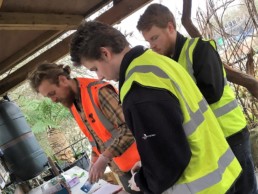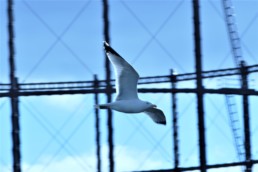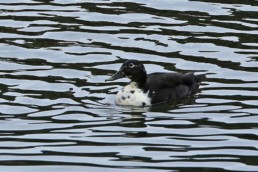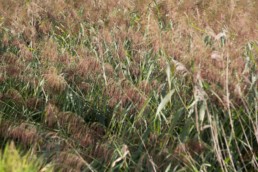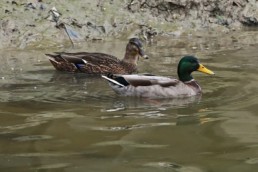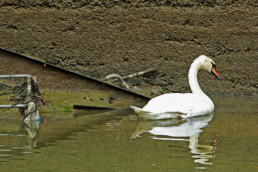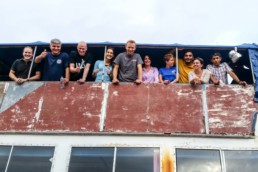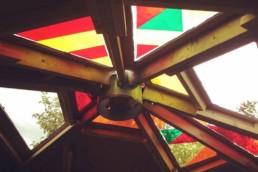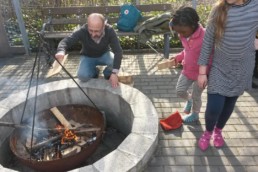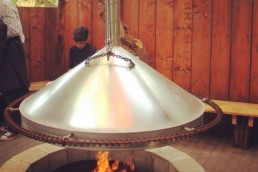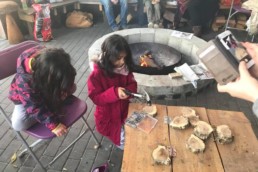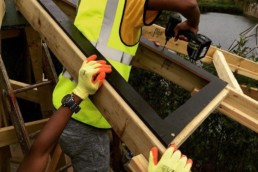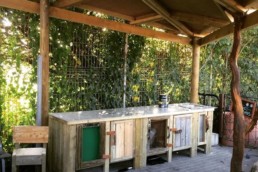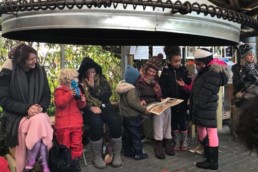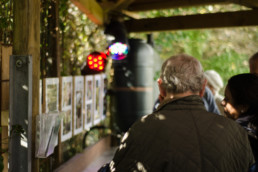Ecological Boat Trips
Discover the Lower Lea River and learn about how this river not only plays a vital role in supplying London with much of its drinking water but also supports an amazing array of wildlife. This trip includes a guided tour of the Lower Lea, taking in Bow Ecology Park, Cody Dock reed bed, Cody Wilds, Three Mills Island, Channelsea River the Northern Outfall and Joseph Bazalgette’s Pumping station.
Ideal for educational field trips, corporate away days and private functions, the River Princess comprises of two indoor rooms on her lower deck which open out on one another to make one large space that accommodates up to 90 passengers. The back saloon has a fully licensed bar & canteen, while the forward saloon comes with integrated audio and visual equipment suitable for schools and work-based presentations and other functions. The top deck has a single large covered open space and makes a superb viewing deck and ancillary space.
In addition to schools packages, corporate team building sessions and simple private hire, our Community Boat service is able to offer a range of tailored environmental and heritage boat trips for groups of all ages and sizes.
Boat Trips
For quotations and booking enquiries, please contact:
Phone: 02074730429
email: [email protected]
Pricing
Schools: £250 per trip (up to 3 hours)
Private Charter: £350 per trip (up to 3 hours)
Additional hours: £100 per hour
Schools: £35 per hour
Community: £45 per hour
Private: £75 per hour
Additional venue & equipment services available on request
Floating Classroom Hire
Why not hire the River Princess as a teaching space for your students? Click here for more information.
Outdoor Classroom
Over six weeks in Summer 2017, 17 young people, aged 14-18, from Newham Youth Offending Team and Newham Young Refugees and Migrants worked alongside staff from the charity Build Up to construct a new outdoor classroom at Cody Dock. The young people imagined and created the shelter from the ground up, gaining skills in carpentry and construction, as well as team work and design. The structure was built using reclaimed and natural materials, where possible sourced from the local area. The amazing space they have created, which was made possible by a £10,000 grant from the Big Lottery and a £1,500 donation from a generous private donor, is now used regularly by forest school groups, local primary school children and the general public and is available for hire.
Pricing List:
Community Rate: £25 (for 4 hours minimum) + £25 for wood if required
Additional Hire £5 p/h
Commercial Rate: £75 (for 4 hours) minimum + £25 for wood if required
Additional Hire £15 p/h
Ecology Field Trips for Schools
We have worked with numerous schools, colleges and other educational groups to offer engaging ecological field trips for their students. Below are some examples of work we have done:
If you’re interested in arranging an ecology field trip, or would like to hear more about what we can offer to complement your curriculum, please get in with [email protected].
Building a Bug Hotel
In July 2018, a group of 19 students from Star Primary School and staff worked with us on a joint project with a local business, Union Coffee, to create a bug motel. The group enjoyed a tour of the Union Offices and roasterie and then it was on to Cody Dock to take part in a workshop – building a bug hotel whilst learning about insects and habitats. The students also helped design and illustrate a sign for the new wildlife area outside Union which brightens up the walk along Cody Road.
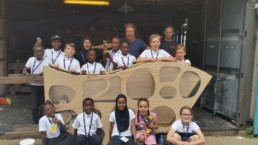
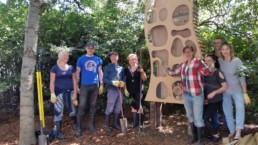
RSPB Big Garden Bird Watch
Members of the community and local schools take part in our annual event hosting the RSPB Big Garden Birdwatch. We offer our site to those without gardens and individuals who want to learn and participate in citizen science activities. Many individuals sighted species they had never seen before including the Little Egret, Kingfisher and Yellow Wagtail, a species facing decline.
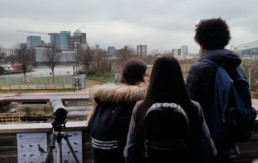
Citizen Science Lea Ecology Surveys
Our charity has been working very closely with Thames21, Kew Gardens, Newham Council and the RSPB to survey the local ecology with the express aim of helping to identify and safeguard the existing wildlife and their habitats through various citizen science projects, volunteer and engagement programs along this particular stretch of tidal river foreshore for the past six years. To this end, we were responsible for the creation of ‘Cody Wilds’, a one-kilometre stretch of a wildlife corridor that stretches from Cody Dock to Bow Locks.
The stretch of river supports an unusually high level of diverse flora and fauna, made possible as a result of a generation of post-industrial neglect that has enabled an incredible array of wildlife to exist on a large number of tidal mudflats and the brownfield sites, many of which are imminently destined for redevelopment. Our Ecology Surveys include in-depth Bird population mapping, Phase 1 Botanical Survey, National Vegetation Classification, Invertebrate Surveying, Bat Records and Fish Surveys.
If you would like to collect important wildlife records for the Lower Lea and help record wildlife in this area, all you need to do is download Epicollect5 and add the project Cody Wilds Wildlife Records. To add an entry follow the simple survey and sync it once finished! It can help make a massive difference to existing records and data! For more information, just email [email protected].
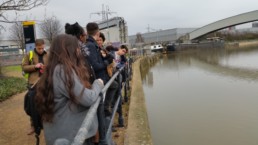
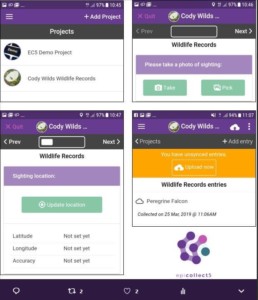
Interested in arranging an ecology field trip?
Please get in touch with [email protected] if you’re interested in arranging an ecology field trip, or would like to hear more about what we can offer to complement your curriculum.
Lea River water quality testing
The River Lea is a crucial watercourse that flows predominantly southward
from its source in the Chiltern Hills through North and East London,
converging with the River Thames. A significant proportion of the river has
been surveyed and has continued monitoring schemes, collecting data to
ensure habitat quality is maintained along the heavily modified river. Between Three Mills Lock and the point of convergence with the Thames, there is
approximately 4.1km of unmonitored watercourse.
With the support of Thames21 and volunteers, we began sampling the outfalls and the dock to form a baseline. With limited testing equipment we are now able to measure basic chemical and physical indicators. We currently test for pH, phosphates, nitrates and turbidity. We aim to produce a more indepth citizen lead project which can use more detailed indicators with accessible equipment and methodology.
Our Environmental Auditing process is supported by citizen science with large contributions from voluntary participation. Please get in touch if you would like to take part in our programme.
